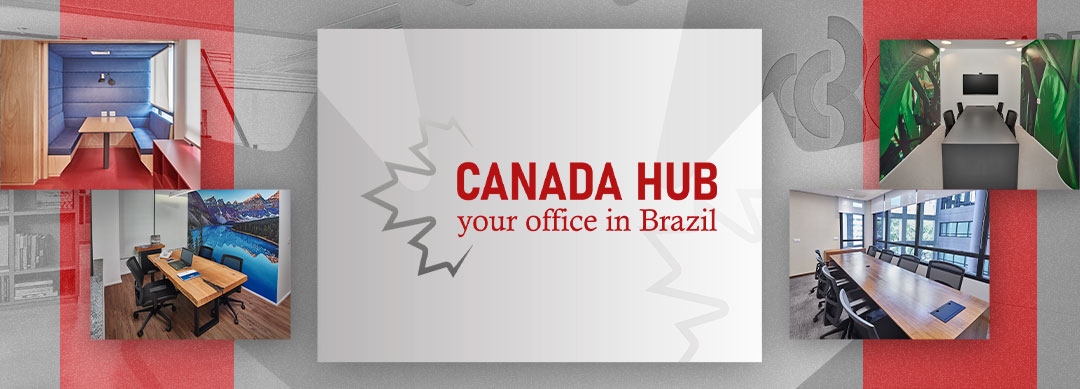Learn about the options that Canadian universities are offering to support new students due to the restrictions imposed by COVID-19
By Estela Cangerana
Many Brazilians had left for 2021 the project to resume, or even begin, studies in Canada, several of them postponed from 2020 because of the new coronavirus pandemic. But the year started with many questions and without great progress in the fight and vaccination against the virus. The good news, however, is that universities and specialized companies have prepared themselves for this scenario of uncertainties, and today, those interested find good options to take the plans out of the drawer.
The entire process of migration and adaptation to virtual education was carried out last year and preparations for the transition back to a new model in the post-pandemic are advanced. This is because several of them had been programmed for this return in early 2021. It has not happened yet, but as it may come in the next months, the courses started this year are designed in a hybrid way, allowing the student who wants to attend as soon as the pandemic cools down, so he or she may start studying now.
There are great options all over the country. In Quebec, in eastern Canada, Universitè de Montréal (UdeM), which offers undergraduate and postgraduate degrees in several areas, is making the entire process of admission of new students in a virtual way. The courses recently started, and the previous ones continue, almost in their entirety, in remote activity, with synchronous and asynchronous contents. The only exception is for classes that must necessarily take place in laboratories.
“With the lack of contact with students, the pandemic has brought us a particularly challenging scenario. But the university has advanced even further and has been creative in providing remote environments with the conditions to overcome the lack of presence, while maintaining commitment and the same quality of teaching”, comments the ambassador of UdeM in Brazil, Carine Berteli Cardoso.
Several new features have been implemented, such as the launch, last year, of the online version of an intensive French course, to reach the level required for following university classes, focused on new students.
For the next both undergraduate and postgraduate groups, which start in September, the conditions for face-to-face classes will still be evaluated. Independently of this scenario, when the circumstances allow, everyone will be able to migrate to presential classes. “We are aware of the importance of presential experience, especially for international students. It is a worthwhile planning because, in fact, it enriches the education as a whole”, says the ambassador. Among more than 67 thousand students, which are studying at the university, 10 thousand came from other countries.
Full support
On the west coast, in Vancouver (British Columbia), University Canada West (UCW) has developed a detailed security plan for the present and the future, which considers possible scenarios and their contingencies. The student has also been provided with guidance on how to proceed in order not to have their plans jeopardized.
The university also created a specific email to clarify questions on Canada’s requirements for people entering in the country, and on quarantine procedures. “As 90% of our students are international, we seek to offer the complete information in the easiest and most accessible way possible to support them at this time”, explains UCW’s business developer in Brazil, Luciana Duarte.
For now, the classes are happening in a totally remote way, mixing live and recorded content, in order to enable the audience of students, even in different time zones. This should remain so until April, when the pandemic scenario will be reassessed.
When the return to the presential system is allowed, whoever started in a virtual way can migrate and, as Luciana explains, according to the current rules, even if the undergraduate or postgraduate course has been done up to 50% of the period in the virtual manner, the student may still be entitled to request the work permit in Canada.
UCW is a university of arts and humanities, with undergraduate and postgraduate courses focused on business and technology. The institution works with four intakes a year (January, April, July, and October) and is open for registration in July and October 2021. In case the student enrolls for any of these presential courses and does not obtain the visa in time or has any other problem that prevents him from traveling, the university is allowing the free postponement to a new intake, for once.
Cautions for making sure you do not make mistakes
The possibility of making this change is an important factor, according to the experts. This is because extra care and detailed planning are still needed to get around the obstacles that remain, such as the longer term for student visas.
“At the beginning of the pandemic, the consulates stopped the activity, and some became remote. Consulado Geral do Canadá (Consulate General of Canada) in São Paulo is operating, but still with reduced capacity, focused on priorities. The visa and immigration processes have actually taken longer than normal”, says Marina Snyder, an immigration consultant of the company Canadá com Você (Canada with You), commenting on the wait for these permits, which can take months.
According to her, some processes were relocated to Canadian consulates in other countries to minimize the waiting, but problems with the language (with documentation delivered in Portuguese) ended up hindering the task. “Those who have plans for 2021 must keep in mind that they must have flexibility. It is necessary to consider that the government continues with its immigration goals, the borders remain closed, but there is the list of entry exemptions, which includes students from schools with quarantine plans”, she says, recalling that Canada requires Covid-19 exam and quarantine plan for all those who arrive in the country.
Marina Snyder recently participated in the webinar Perspectivas Canadenses para 2021: Imigração, Educação, Emprego e Economia (Canadian Perspectives for 2021: Immigration, Education, Employment, and Economy), organized by Canadá com Você (Canada with You), with support from CCBC. Learn more about these topics by watching the webinar at https://www.youtube.com/watch?v=09_fH24ibDM




